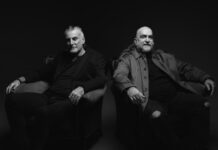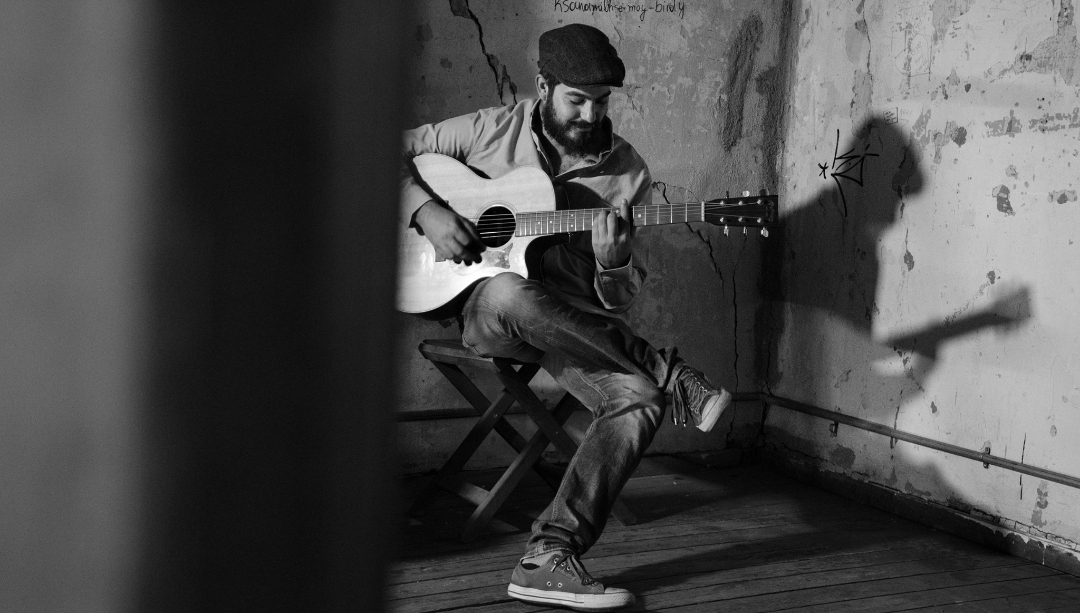Επιμέλεια συνέντευξης: Εύα Πετροπούλου Λιανού
Μετάφραση: Alexander Kabishev
Aksinya Novitskaya: She was born in a small village in Bashkiria. She graduated from high school in Ramenskoye near Moscow. Graduated with honors from RSUH, Faculty of Linguistics.
Now I teach Spanish and English to adults and children.
I’ve been writing poetry since I was a child. Much attention is paid to the melody of the poem and the versatility of meanings and images. Since 2018, a member of the Union of Writers of Russia. During this period, she led a column of young poets of the city of Zhukovsky in the city newspaper “Zhukovsky News”. In 2019, the first collection of poems “Nebrodsko” was published. Now I live in Serbia. A mother with many children.

What inspired you to write? To whom or what were the first works dedicated? I think that the very rhythm of poetry, like a special music enclosed in the form of a text, became the first inspiration. Mom told me that she often noticed me humming words, rhyming, coming up with new word forms if the existing one did not fit into the rhythm or rhyme.
The earliest surviving poem, a quatrain, is dedicated to the border guard and books. At that time I was 6 years old, I had already read a lot, read books about the war, including. As far as I remember now, Arkady Gaidar’s story about Timur and his team and stories about pioneer heroes made a huge impression on me.
“Day and night I stand on the border,
I am saving the peace of the Motherland.
So that the enemy does not penetrate,
So that children read more books”
Later, of course, there were first love and first travels, and poems dedicated to mom, and dreams in poems about a kitten, and attempts to rhyme congratulations to grandparents.
Do you have a favorite author? Why exactly is he/she? A lot of things change during my life, I read new works and new authors or rediscover books I have already read.
This happened a few years ago, when together with the eldest child they read Dostoevsky’s “Crime and Punishment” and discussed. Since high school, one of my favorite works suddenly opened up in a completely different way, although I thought I knew him very well.
Apparently, a person is changing, accents are shifting, new impressions and interests appear, and even reading a well-studied text before, you pay attention to details and details that were previously overshadowed by a bright storyline.
If we talk about Russian classics, which always bring inspiration, always evoke deep feelings in response, then this is F.M.Dostoevsky, prose and poetry by Boris Pasternak, poets of the Silver Age, poems by Joseph Brodsky.
If we talk about foreign literature, then my favorite authors are G. G. Marquez and Erich Maria Remarque.
What collections have you participated in over the past few years? What were these books and what do they mean to you? The very first collection was the poetry collection “Literary Festivals” from “Periscope-Volga”, in 2019. I got into many collections after participating in competitions and festivals.
And now I am waiting for the publication of the poetry collection “Poetry of the City of Heaven”, which unites the work of the poets of the city of Zhukovsky, as well as the bilingual collections “Friendship” and “Pearl”, edited by Alexander Kabishev, which were attended by prominent St. Petersburg and Russian poets, along with poets from Serbia and Italy.
Each publication in the collection is valuable for me, first of all, the joy of uniting with creative like-minded people, working together on a project, the opportunity to discover new names and plunge into the element of strings.

Have you translated poems by other authors into Russian? What were these poems and how did you remember them? Yes, I was engaged in translating poems by other authors into Russian, as well as my own into Spanish and English.
Poetic translation is always a problem with an asterisk. And here we must understand that the question is not only in an attempt to convey the rhythm of the poem, poetics, images, but also to reveal the cultural code of another people, to convey completely unusual features of the perception of the world for a Russian person.
In your opinion, what are the similarities and differences in the poetry of different peoples? A completely different approach to rhyme. This is what catches the eye. Surprisingly, in many cultures, rhyme is completely optional.
The rhythm and the special atmosphere created only in a poetic work are obligatory.
What is the peculiarity of St. Petersburg culture and literature and how does it affect you? Unfortunately, my dream of living in St. Petersburg in a house with windows on the Baltic Sea has not yet come true. Every time I find myself in St. Petersburg, I feel a sacred thrill — Anna Akhmatova’s foot set foot here, and little Joseph Brodsky lived in this house, Alexander Sergeevich and the heroes of his works traveled along this avenue. It seems that St. Petersburg is all made up of words, rhythms and images.
Surprisingly, it was with participation in the St. Petersburg contest “Poet of the Year” in the spring of 2018 that my path to the general reader began. I think this is a good sign.
Several of my poems are dedicated to St. Petersburg, for example :
Autumn
The black clouds will dissipate, the sun will descend—
Birds, perched, will sing their songs.
Stop, this autumn is steel and crimson
The color of the lonely minutes leaving at the peak.
The wind, flying down the avenue, tearing off millions
Roses, banners, burgundy and yellow sheets,
He will sit at a distance, so that from the bright chestnuts and maples
he can watch for a long time how you iron the railings of bridges:
Do they remember the heat from takeaway coffee cups,
Do they keep track of how much rain has flowed into the sea —
We will be reflected in the eyes of a grown-up son,
Becoming the little that gives love and warmth.

What can you say about the modern creative youth of St. Petersburg? This is an absolutely amazing community: with all its diversity, diversity and diversity, it consists of creative people who easily find a common language and common ground with each other, ready to support and help, sincere, bright and amazing in their originality and talent.
How do you see the future of your creativity and world literature in general? I would really like art, literature in particular, to receive a new influx of admirers. Now there is a very big shift towards visual information all over the world, and literature, although it is the basis of films, clips, theatrical productions and any other types of visual and audio art, assumes, in my opinion, some special, intimate perception from each text.
What would you like to wish your readers and fellow writers/poets in the coming 2023? I wish you boundless peace, freedom of inspiration and undying optimism.

































